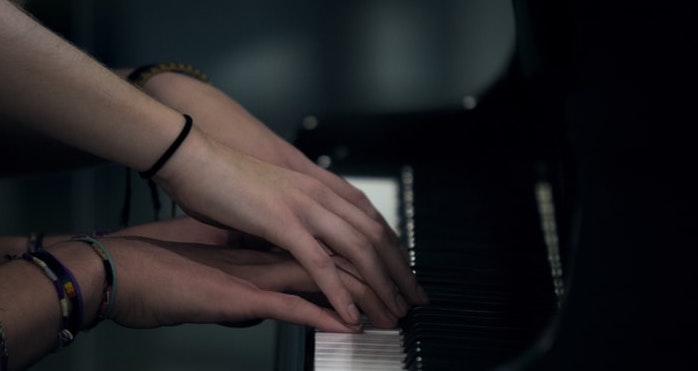How do you have a great relationship?
Practice, kid, practice.
As a couples therapist in NYC—the not-enough-time-in-the-day capital of the world—I shudder at the notion of relationships requiring hard work, because I know that hard-working people don’t want to then work hard when they get home to their partners. Humans are often most proud of those accomplishments that required a great deal of effort, but we also gravitate toward making things more efficient and easier on ourselves, don’t we?
I sat in a park today and watched two people meeting up to resolve some sort of misunderstanding. They spent over an hour trying to communicate their thoughts and feelings so each could feel understood. On the edge of her seat—and I, mine—she pleaded with him and gesticulated when he seemed to physically and emotionally pull away. She reached her hands toward his, but his hands stayed affixed to the seat of his chair. He looked into her eyes with great sincerity as he explained his side of things. Exasperated, they both rubbed their eyes. He sighed; she sighed. Periodically, they’d each sit in silence, looking down at the ground. The conversation was civil. The love was palpable. Still, it seemed like touch-and-go for a while. They were both actively listening and actively trying to be heard. As the discussion reached its crescendo, their hands mutually reached for each other at long last, and the three of us felt relief.
I was rooting for them, and I got up and left the park when I knew they were going to be ok. I was far enough away that I couldn’t hear what was said, but the non-verbal cadence of the discussion made it clear that relationships are hard work. But, not forever.
Some of you might interpret this to mean that you can stop working on being an attentive, compassionate, or present partner after some period of time. In fact, judging by many of the people I’ve known throughout my life, most people seem to do exactly that. Partners can become resentful, distant, or disconnected when a relationship is neglected. Attending to your relationship doesn’t have to be a chore forever, but clocking out for the last time because "things are good" is a temptation we should all resist.
Many of us know what it's like to learn an instrument. We’re not born knowing how to play piano, for instance, and watching a pianist play won’t turn us into virtuosos. We need, instead, to get our fingers on those keys, make mistakes, play a piece over and over. At some point, our fingers will naturally know where to go. It takes consistent effort of varying degrees to be and stay a great pianist...and a great partner.
Yes, consistent effort. Consistent effort means you’re showing up for each other in an ongoing way. And you want to be great, right? Then you better practice. Practice identifying and being direct with your feelings rather than passive, aggressive, or passive aggressive. Practice listening to your partner’s needs, even when they highlight your shortcomings. Practice saying, “I love you, but I need to leave for a bit” to your partner when you’re so mad you need to go anywhere-but-here to cool off. Practice saying you’re sorry in the midst of feeling shame for what you’ve done wrong. Practice repeating what your partner is trying to communicate to you so you convey your understanding or desire to understand. Practice meeting your partner’s needs to the best of your ability, and expressing your needs when you feel they’re not being met. You’ll get better, and it’ll get easier.
You got this! And, after a while, you and your partner can become like complementary musicians playing a piece of music: Although playing will come naturally, you both need to show up to make it work.
You might also like: Wanna kill desire? Add pressure to your sex life.


